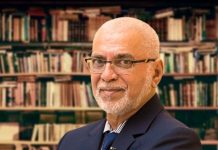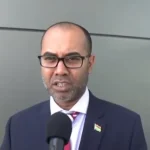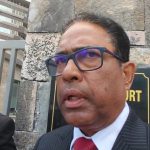With the amendment of the Information and Communication Technologies Act (ICTA), Mauritius joins the club of countries like China, Iran, Cuba, and Syria. This is regressive, ridiculous, sad and dangerous.
On the 31st of October 2018, the population watched live the debate of the National Assembly, where the Judicial Legal Provisions Bill (No. 2) was discussed. This is a highly controversial provision that amends Section 46 of our Information and Communication Technologies Act (ICTA). In essence, the government had proposed to systematically silence our internet users, to a large extent. The law was voted by simple majority and sadly, the acting President of the Republic acted as a rubber stamp by giving his assent to the piece of legislation. He did not think it appropriate, as the guardian of our Constitution, to use his own deliberate judgment to send the bill back to the Assembly for reconsideration, as permitted by our Constitution.
The new provision would make it an offence to post any messages whether in the form of speech or other sound, data, text, writings, images, signs, signals or code, or in any form or combination of forms that is likely to cause or cause annoyance, humiliation, inconvenience, distress or anxiety to any person. The amendment went far, as removing the burden of the plaintiff to prove that the intention of the user was to cause annoyance. The penalties have been raised to up to 10 year imprisonment. Several parliamentarians had intervened lengthily on the proposed amendment. Both sides of the House made their arguments. On one hand, we heard that the government has become a machine of censorship and on the other hand, it was said that the legislation is to protect our children from sexual abuse on the Internet. However, it is clear that the amendment of censorship is disproportionate and the end result is not to combat child pornography: it is a clear violation of freedom of expression. The amendment is quite similar to section 66 (A) of the Information Technology Act, which was declared unconstitutional and “arbitrarily excessively and disproportionately invades the right of free speech” by the Supreme Court of India.
We live in a digital era, where digital information flows at a super high speed. Our youth is avid of news and views and expresses freely his thoughts, opinions and views. Parents should now fear that their children can get arrested for their use of social media. It shall now be easy to be punished if we publish, share or comment on posts that may annoy another individual. There is no need for the complainant to prove that he has been distressed by the post. Distress is a mental condition, which is difficult to prove.
The protection of freedom of expression is enshrined in Clause 12 of our Constitution. Our existing legislations already allow the prosecution of individuals who share illegal or who post defamatory contents on the internet or who deal with child pornography. So why that urge for the government to adopt stringent internet censorship and surveillance? Is Internet censorship being used as an oppressive tool to intimidate its opponents? Have the legislations been passed in anticipation of the upcoming general elections? During the last election, we have all seen the clip “vire mam”, and we all know the impact of the said clip in the electoral results. On Facebook, every day we come across images, caricatures, songs, comments and posts exposing the present mis-management of the government. Is there a fear that the opponents shall now have a clip entitled “devirer mam?” This is obviously a crude authoritarian attempt to control the voice of the nation and the press by a repressive ruling regime. Articles of the press are regularly shared online. It makes no sense that an article will be legal offline, but once posted online shall become illegal.
Recently, we have seen the digital activist, Ruhomally who was convened by the central CID because he had posted a picture of the First lady, in company of the CEO of Mauritius Telecoms. More shocking, it has been alleged that one Shameem Korimbocus, who is known for posting videos and making a mockery of the government, had been asked by the authorities in Dubai, not to post any videos on the internet. Apparently, the request has been made by a so called Mauritian Minister of Islamic Affairs to the Dubai Authorities to silence our Mauritian national. It seems that the said person is being over-zealous in the track to stop antigovernment information to flow, and has now decided that he has extra territorial powers. More surprisingly, was when a member of the parliament warned the said Shameem Korimbocus, during a press conference. It seems that some have now embarked in a mission to track Mauritian nationals abroad.
Around the globe, Iran remains the country where internet freedom is the lowest and people are sentenced to “lengthy prison terms for promoting sufism online, among other digital activities.” China, Cuba, Syria, Ethopia and Uzbekistan follow Iran in terms of freedom of the internet. On the other side of the spectrum, you have countries like Iceland, Estonia, Canada, Australia, Germany and United States with the most internet freedom. Mauritius, instead of adopting a more progressive approach to internet laws, has sadly decided to join the club of countries, which are not the champions in human rights.
Popularity of a government is earned by working for the welfare of its citizens by alleviating poverty, promoting good governance, fairness and justice and not by following the path of oppression.
There is wide spread international consensus on online material to be censored with regards to child pornography and cyberterrorism, and not in curtailing the freedom of expression of a nation. In fact, Article 19 of the Universal Declaration of Human Rights says- ” Everyone has the right to freedom of opinion and expression; this right includes freedom to hold opinions without interference and to seek, receive and impart information and ideas through any media and regardless of frontiers.”
We should all stand united against oppression, and categorically refuse that our rights to freedom of expression be restricted, only to please the government of the day. We owe that to our youngsters and to the future generation.





![[Khutbah] Agissons pour démanteler l’apartheid](https://sundaytimesmauritius.com/wp-content/uploads/2024/04/bb04fde8a58c094bbc787384ea2fc3d1-218x150.jpg)

![[Democracy Watch Mauritius] Pour des résultats positifs aux travaux parlementaires ?](https://sundaytimesmauritius.com/wp-content/uploads/2024/03/democracy_0-218x150.jpg)



![[Rapport de l’audit] Les gaspillages à gogo se poursuivent](https://sundaytimesmauritius.com/wp-content/uploads/2024/04/WhatsApp-Image-2024-04-08-at-10.59.26-150x150.jpeg)



![[Rapport de l’audit] Les gaspillages à gogo se poursuivent](https://sundaytimesmauritius.com/wp-content/uploads/2024/04/WhatsApp-Image-2024-04-08-at-10.59.26-100x70.jpeg)